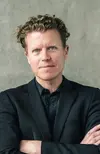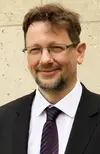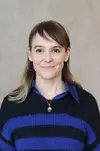After decades of increasing global interdependence, a process of "de-globalisation" appears to be underway. The market-liberal approach that is prevalent in the context of globalisation is increasingly being supplemented by active industrial policy, which is aimed, for example, at controlled transformation or economic autonomy. In addition, dependencies in foreign trade are increasingly being discussed critically: the provision of "strategic" goods such as rare earths, batteries or semiconductors should no longer be left to pure market logic, but should be guided by targeted policies in the sense of "derisking" and resilience – and thus "securitised". At the same time, trade between political allies seems to be taking precedence over the principle of global division of labour. The result is disentanglement, if not decoupling.
The doctoral programme "De-Globalisation and Global Decoupling" (DeGlobE) now aims to investigate how the recalibration of market and state, economic paradigms and regulatory levels and approaches that is emerging under conditions of de-globalisation manifests itself. On the one hand, DeGlobE is interested in the developing, specific "post-globalisation logics" that characterise these sectors. On the other hand, the question will be posed as to what consequences de-globalisation, disentanglement and global decoupling have for normative goals such as social justice, socio-ecological transformation or the observance of human rights, and which mechanisms can take the place of former multilateral approaches.
The research group will explore the issues associated with de-globalisation in four primary thematic areas:
- Subject area 1: Clean Transition and Green Technologies under the lead of Professor Andreas Goldthau (Public Policy): PhD projects in this thematic area may address, for example, the external dimension of the EU Green Deal, equitable energy and industrial partnerships, or resource-based development through Critical Transition Materials.
- Subject area 2: Supply Chains: Human Rights and Sustainable Development under the lead of Assistant Professor Michael Riegner (Law): Doctoral projects in this thematic field can, for example, examine the mobilisation of supply chain law, co-determination and supply chain law or the management of supply chain risk in companies.
- Subject area 3: Value Creation and Security Apparatuses under the lead of Professor Sophia Hoffmann (International Politics and Conflict Research): PhD projects in this subject area should be primarily dedicated to the topic of economic intelligence, which examines the strategic use of intelligence services in the global economy; or on the question of how state security actors are linked to value creation processes.
- Subject area 4: Financial Infrastructure Policy under the lead of Professor Oliver Kessler (International Relations): PhD projects in this thematic area can, for example, investigate BRICS pay and currency hierarchies, investment screening, or financial infrastructures.
DeGlobE is institutionally anchored in the Security an Capitalism research group at the University of Erfurt. At the same time, the doctoral programme will collaborate with two certified graduate centres at the university – C2PO (Center for Political Practices and Orders) and EIPCC (Effective and Innovative Policymaking in Contested Contexts). The latter will ensure integration into the university's supervision structures for doctoral students and postdocs and create an interdisciplinary research environment in which individual research projects can find multiple methodological and subject-specific connections.




